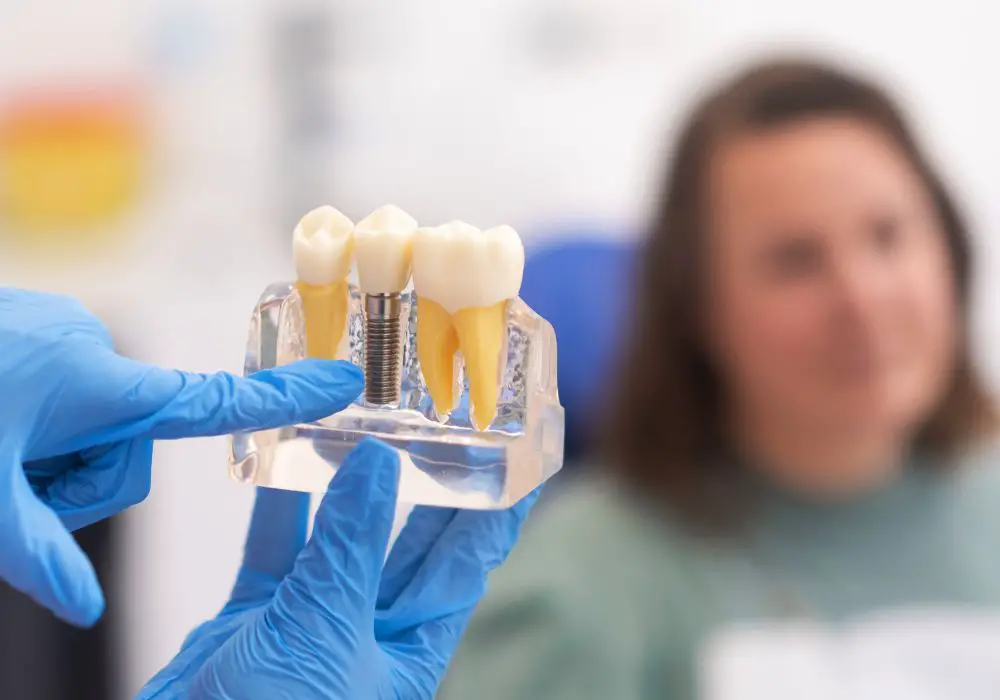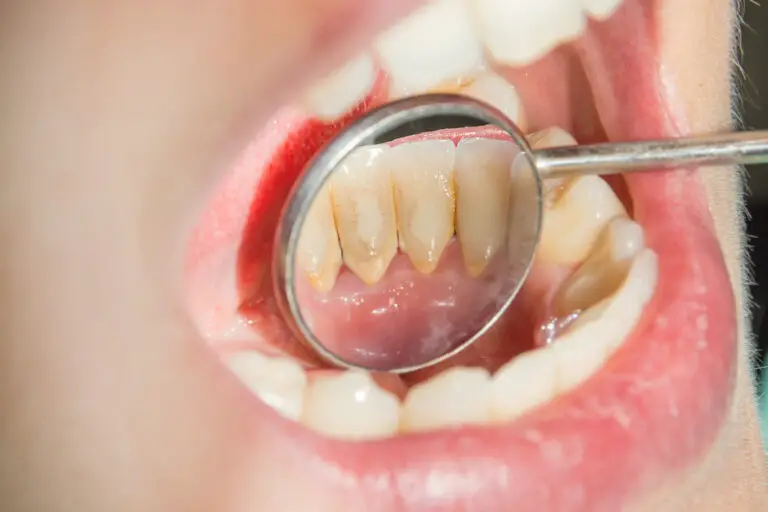Dental implants have revolutionized the field of dentistry, offering a reliable solution for those with missing teeth. Whether you lost a tooth due to decay, injury, or other reasons, dental implants provide a natural-looking and functional replacement. However, the decision to undergo implant surgery is not one to be taken lightly.
This article aims to explore the intricate details surrounding dental implants, providing a comprehensive guide to help you determine if you are a suitable candidate for this transformative procedure.
What Are Dental Implants

Dental implants crafted from titanium, are artificial tooth roots that undergo surgical placement into the jawbone. These implants act as a robust base for replacement teeth, commonly referred to as crowns. The components include the implant itself, an abutment connecting the implant and crown, and the crown designed to match your natural teeth.
Types Of Dental Implants
Dental implants come in various types, each designed to address specific patient needs and anatomical considerations. Understanding the distinctions among these types is crucial for both patients and dental professionals.
- Endosteal Implants
These implants typically resemble small screws, cylinders, or plates made of biocompatible materials like titanium. The placement involves a surgical procedure where the implant is anchored into the jawbone, providing a sturdy foundation for the prosthetic tooth or teeth that will be attached later. Endosteal implants are versatile and suitable for various restorative options, including single crowns, bridges, or implant-supported dentures.
- Subperiosteal Implants
In cases where individuals have insufficient bone height or face challenges with traditional implantation, subperiosteal implants offer a viable alternative. Compared to endosteal implants, subperiosteal implants are positioned on top of the jawbone and underneath the gum tissue. A metal framework, custom-made to fit the contours of the patient’s jaw, is placed, and prosthetic teeth are attached to this framework. Subperiosteal implants are particularly beneficial for patients who may not be ideal candidates for traditional implants due to bone loss.
Advantages Of Dental Implants
- Improved Aesthetics
Dental implants look and feel like natural teeth, enhancing your smile and facial appearance. The aesthetic benefits can significantly boost your self-esteem and confidence.
- Enhanced Oral Functionality
Unlike traditional dentures, dental implants provide stability, allowing you to chew and speak easily. This improved functionality contributes to a better overall quality of life.
- Durability
Dental implants are known for their durability, with proper care and maintenance. Unlike alternative solutions, they can last a lifetime, making them a cost-effective investment.
- Preserving Jawbone Health
Integrating dental implants with the jawbone stimulates bone growth, preventing the deterioration commonly observed in areas with missing teeth.
Factors Influencing Dental Implant Candidacy

Dental implants have become a popular and effective solution for individuals dealing with missing teeth. However, not everyone is an ideal candidate for dental implants. To determine whether you are suitable for this procedure, here are some factors to be considered:
- Overall Health
Your overall health is crucial in determining your candidacy for dental implants. Individuals with chronic medical conditions such as uncontrolled diabetes or heart disease may face challenges in the healing process. Additionally, smoking can negatively impact the success of dental implants. Good general health and a commitment to maintaining it are essential for a successful implantation.
- Jawbone Health
The health and density of your jawbone play a pivotal role in the success of dental implants. Implants rely on a sturdy foundation for support, and a healthy jawbone ensures the stability and longevity of the implants. If your jawbone has suffered significant deterioration due to tooth loss or other reasons, additional procedures like bone grafting may be necessary to prepare the site for implantation.
- Age Considerations
While age is not a strict criterion, older individuals may face certain challenges related to bone density and overall health. However, many older adults successfully undergo dental implant procedures with proper evaluation and consideration of individual health status.
- Oral Health
A good candidate for dental implants must exhibit excellent oral hygiene practices. Conditions such as gum disease can jeopardize the success of the implants, as they depend on healthy surrounding tissues for support. Prior to implantation, any existing oral health issues must be addressed to create an optimal environment for the procedure.
- Commitment To Aftercare
Dental implant success relies heavily on postoperative care. Candidates must be willing to follow proper oral hygiene practices and attend regular check-ups. Additionally, a commitment to lifestyle changes, such as quitting smoking, may be necessary to enhance the chances of successful integration and minimize potential complications.
- Financial Considerations
While dental implants offer long-term benefits, they can be a significant investment. Candidates should carefully consider their budget and explore available financing options. Some dental insurance plans may cover part of the cost, but clearly understanding the financial commitment associated with the entire process is essential.
- Psychological Preparedness
The psychological aspect of dental implant candidacy is often overlooked. Individuals considering dental implants should be mentally prepared for the process, understanding the procedure’s time commitment, potential discomfort, and transformative nature. A positive mindset and realistic expectations contribute significantly to the overall success and satisfaction of the implant journey.
The Dental Implant Evaluation Process
- Pre-Consultation
Scheduling an initial consultation with a qualified implant specialist is the first step. The consultation kicks off with a detailed discussion about your oral health history. This involves delving into past dental procedures, current oral health practices, and any concerns or issues you may be experiencing. This step provides the implant specialist with valuable insights into your dental background.
- Comprehensive Oral Examination
The dentist will conduct a thorough examination of your mouth, gums, and remaining teeth. This visual inspection helps identify any visible issues that may impact the implantation process. In addition to X-rays, three-dimensional imaging, such as cone-beam computed tomography (CBCT), provides a detailed, three-dimensional view of your oral anatomy. This advanced technology allows for a more precise evaluation of bone structure, nerve pathways, and potential implant sites.
- Imaging And Diagnostic Tests
Advanced imaging technologies offer a detailed view of your oral anatomy, allowing the implant specialist to analyze the bone structure, identify sinus locations, and assess the overall landscape for potential implant placement. The information obtained from these imaging techniques aids in planning the precise placement of dental implants. This level of precision is crucial for ensuring the implants integrate seamlessly with the jawbone, promoting stability and long-term success.
Conclusion
The decision to undergo dental implant surgery is a significant step toward reclaiming oral health and overall well-being. By understanding the intricate details outlined in this comprehensive guide, individuals can make informed decisions about their candidacy for dental implants, ensuring a transformative and positive experience.







